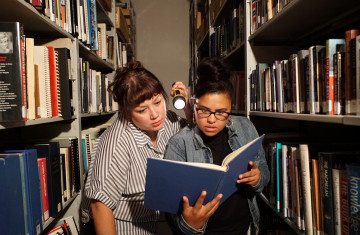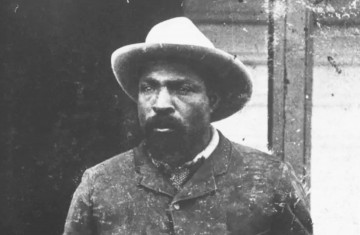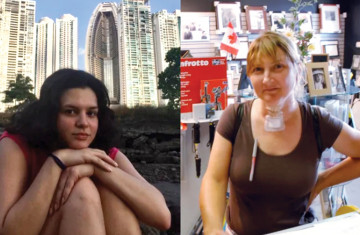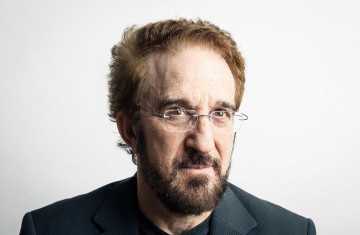Canada: The good, the bad, and the obscure

Hosts of Secret Life of Canada Falen Johnson (left) and Leah-Simone Bowen.
Canada’s history as a country is rich, deeply fascinating and sometimes complex. Our historical relationship with Indigenous communities is mired with pain and trauma, but we honour the original peoples of this land by using Indigenous names and words for our cities, streets and schools. Immigrant communities - even those who have been here for generations - continue to experience social, economic and political exclusion to varying degrees; yet, our tradition of welcoming immigrants with open arms has made Canada one of the most culturally diverse countries in the world. Most recently, the Black Lives Matter movement shone a spotlight on how Black journalists are treated within different media institutions. From not being properly compensated for their work to being reprimanded for voicing their concerns about lack of diversity—the stories keep coming. But what’s deeply moving about this present moment is the support the journalists are receiving from Canadians for sharing their stories. We can never address problems of racism and discrimination if we’re not willing to listen, and these past weeks have shown that Canadians are paying attention. For that reason, for Canada Day, we’re recommending three podcast episodes that highlight stories that may fly under our radar, but play an important role in shaping who we are as a country.

The Secret Life of Canada is a history podcast about the country you know and the stories you don't. Hosts Falen Johnson and Leah Simone-Bowen take listeners on a fun journey to discover actors, stories and moments in history that make Canada what it is today. History buffs will be happy to learn that their careful research for each episode is clearly referenced and cited on the podcast’s website. We recommend this enthralling episode about John Ware, a formerly enslaved Black man who greatly contributed to the Albertan ranching, agricultural and cattle industry. Ware was born into slavery in 1845 in South Carolina. He left when emancipation was declared, living a nomadic life as a cattle herder and travelling thousands of miles before arriving in Alberta. Ware’s fearless ability to control cattle quickly made him a legend and paved the way for him to be one of the first and very successful cattle ranchers in the province. The story of this pioneering cowboy who found his calling on Canadian soil is not only fascinating, but it speaks to the many other stories about the foundations of this country just waiting to be told.
Branchez-vous à votre culture en vous abonnant aujourd'hui!
Isolation doesn't have to be isolating. Sign up and be part of the movement.

How does the way you speak influence the way you experience life? That’s the central question this episode of The Doc Project tries to answer. For one journalist, it’s about fitting in — telltale signs of her original accent signal to others that she’s an outsider, and all she wants is to feel like she belongs. At the same time, it’s the thread that connects her to her roots, and changing her accent may mean hiding an important part of her identity. For a teacher losing her voice due to a disease, it means finding herself in the foreign and raspy voice that is the way she sounds until she loses it altogether. The Doc Project is a podcast featuring quintessentially Canadian stories with a universal appeal, like this episode on the way we sound. The stories featured on this show dive deep into individual experiences that reveal our shared humanity.

Plant-based diets have been around for a long time; in fact, giving up meat is de rigueur for some religions like Hinduism and Jainism. With fast food chains like Tim Hortons and A&W now offering "beyond meat"—a plant-based, meat-like substitute—on their menus, you can say that the plant-based diet has gone completely mainstream and no longer seen as esoteric or weird. But now that you can get a plant-based meal on the go, is it still a healthy alternative? In this episode of White Coat Black Art, two doctors in Newfoundland are teaching locals what they need to know about switching to a plant based diet in a healthy and sustainable way. The show’s host Dr. Brian Goldman created the podcast to reveal the culture of medicine and the health care system from the point of view of those who work on the other side of the gurney.
